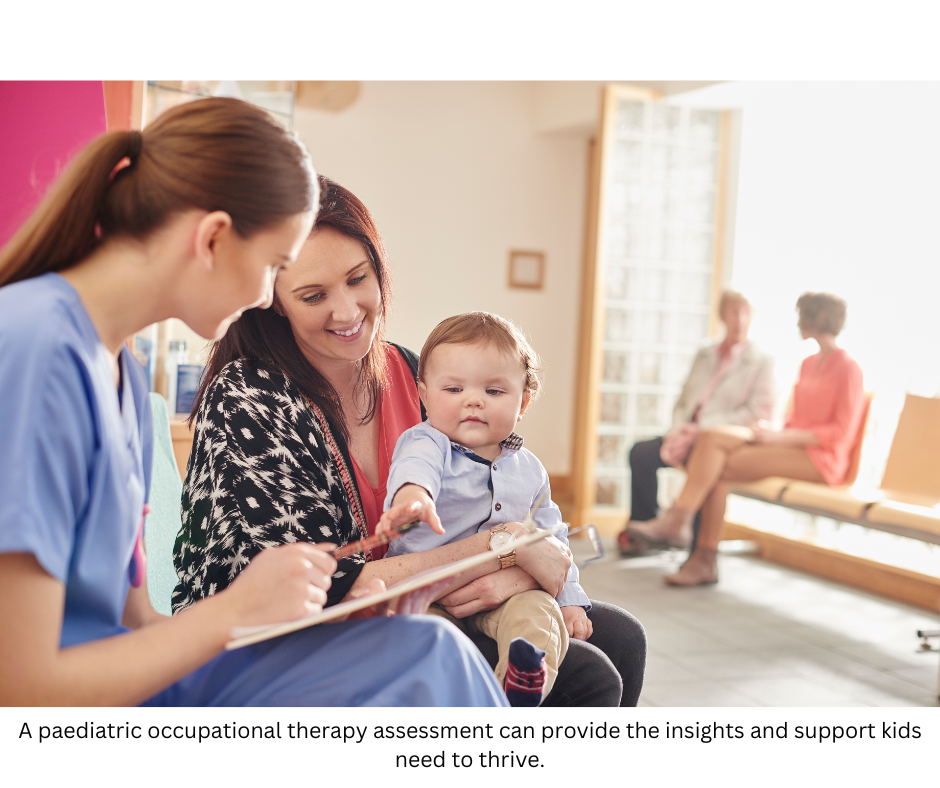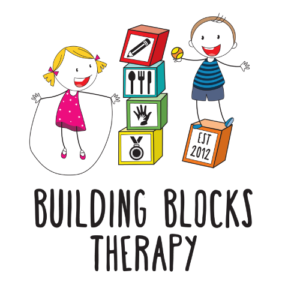Paediatric Occupational Therapy Assessment
A paediatric occupational therapy (OT) assessment is a comprehensive evaluation to understand a child’s unique strengths, challenges, and functional abilities. Conducted by a skilled occupational therapist, this assessment identifies areas where a child may need support in developing essential life skills – ranging from self-care and play to school tasks and social interactions. Our goal is to provide targeted strategies that empower children to reach their full potential, fostering independence and confidence in everyday activities.

Key Areas Assessed
- Fine Motor Skills: Tasks like writing, cutting with scissors, buttoning clothes, or using utensils.
- Gross Motor Skills: Activities involving larger movements like running, jumping, or coordination.
- Sensory Processing: How the child responds to sensory input (e.g., sounds, textures, lights).
- Visual-Motor Integration: The ability to coordinate vision with body movements, important for tasks like drawing or catching a ball.
- Cognitive Skills: Problem-solving, attention, memory, and planning.
- Self-Care Skills: Dressing, toileting, feeding, and personal hygiene.
- Social and Emotional Development: Interaction with peers, emotional regulation, and behaviour.
What Happens During the Assessment?
- Parent/Caregiver Interview: To gather background information about the child’s development, medical history, and daily routines.
- Observations: The therapist watches the child performing various tasks in different settings (e.g., playing, writing, or moving).
- Standardised Tests: Structured activities to measure specific skills compared to developmental norms.
- Questionnaires: Completed by parents or educators to provide additional insights into the child’s behaviour in different environments.
Outcome of the Assessment
An assessment report that celebrates your child’s abilities while guiding next steps for support:
- A detailed report outlining the child’s strengths and areas for improvement.
- Recommendations for therapy goals and intervention strategies.
- Possible referrals to other specialists if needed (e.g., speech therapy, physiotherapy).
Key Benefits of OT Assessments
1. Holistic Understanding of the Child
- Provides a comprehensive view of the child’s strengths, challenges, and developmental profile.
- Looks at physical, emotional, sensory, cognitive, and social aspects of functioning.
2. Early Identification of Needs
- Detects developmental delays or difficulties early, allowing for timely intervention.
- Helps prevent small issues from becoming bigger challenges over time.
3. Personalised Recommendations
- Offers tailored strategies and supports based on the child’s unique needs.
- Can guide therapy goals, school accommodations, and home routines.
4. Supports Functional Independence
- Assesses skills related to daily living (e.g., dressing, eating, organising schoolwork).
- Helps children build independence and confidence in everyday tasks.
5. Improves Participation in School and Home Life
- Identifies barriers to learning, play, and social interaction.
- Recommends tools and strategies to support engagement and success in different environments.
6. Empowers Families and Educators
- Provides clear, practical guidance for parents, carers, and teachers.
- Enhances understanding of how to support the child across settings.
7. Informs NDIS and Other Support Plans
Generates professional reports that can be used for NDIS applications, school planning, or referrals to other services.
Overall, OT assessments can be valuable tools for teachers to better understand their students and create more inclusive and effective learning environments.
Unlock Your Child’s Full Potential
Is your child finding everyday tasks like handwriting, coordination, or social interactions more challenging than they should be?
A paediatric occupational therapy assessment can uncover what’s really going on – offering clear insights, practical strategies, and the support your child needs to thrive at home, at school, and in life.
Discover their strengths. Understand their needs. Empower their future.
Take the first step toward building your child’s confidence, independence, and well-being – book an assessment today.
